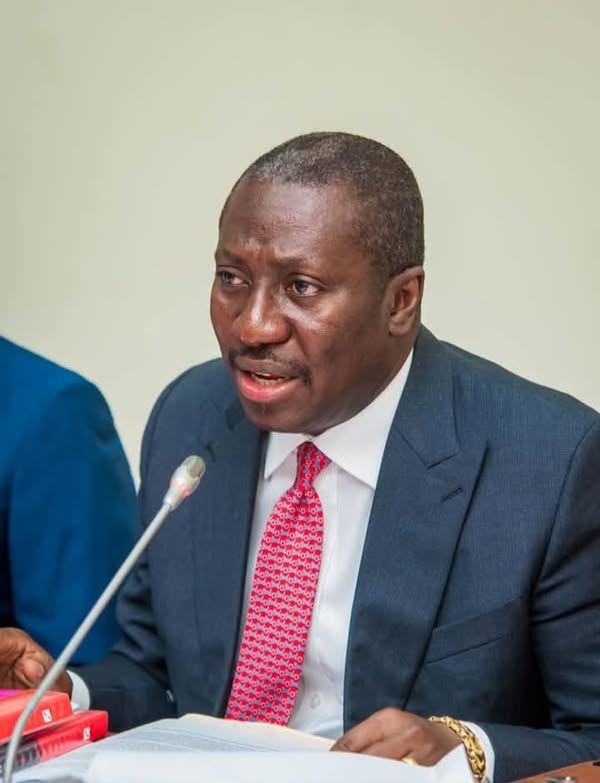Calls for Bail Condition Review: Afenyo-Markin Urges EOCO to Reconsider Wontumi’s GH¢50 Million Bail Terms

The Economic and Organised Crime Office (EOCO) has come under scrutiny following its bail conditions for Bernard Antwi-Boasiako, popularly known as Chairman Wontumi, the Ashanti Regional Chairman of the New Patriotic Party (NPP). Minority Leader Alexander Afenyo-Markin has strongly criticized the terms, calling them unrealistic and punitive. His concerns have sparked broader discussions on judicial fairness and the role of investigative bodies in Ghana’s legal system.
Background of the Case
Chairman Wontumi was granted bail set at GH¢50 million, requiring two sureties, both of whom must be justified. However, the conditions have proven difficult to meet, leading to an extended stay in EOCO custody. Afenyo-Markin, speaking in Parliament, argued that the bail terms were excessive and could be seen as a deliberate attempt to frustrate Wontumi’s release.
Political and Legal Implications
The controversy surrounding Wontumi’s bail has triggered reactions beyond Parliament. Members of the Minority caucus have threatened to boycott proceedings until EOCO revises the conditions. Some legal experts argue that while bail conditions should reflect the severity of allegations, they must also be reasonable and attainable. The case raises questions about whether EOCO’s approach aligns with principles of fairness and due process.
Public and Legal Reactions
Legal analysts have pointed out that bail conditions should not serve as a form of punishment but rather ensure compliance with legal proceedings. Some critics argue that EOCO’s stringent requirements could set a precedent for politically motivated legal actions. Others believe that Wontumi’s case highlights broader concerns about selective justice and the treatment of high-profile individuals in Ghana’s legal system.
As the debate continues, calls for EOCO to reconsider its bail conditions grow louder. Whether the agency will adjust its stance remains to be seen, but the case has undoubtedly ignited discussions on judicial fairness and political influence in legal matters. The outcome could shape future approaches to bail conditions for public figures and reinforce the need for balanced legal processes.



0 Comments
No comments yet, be the first to comment